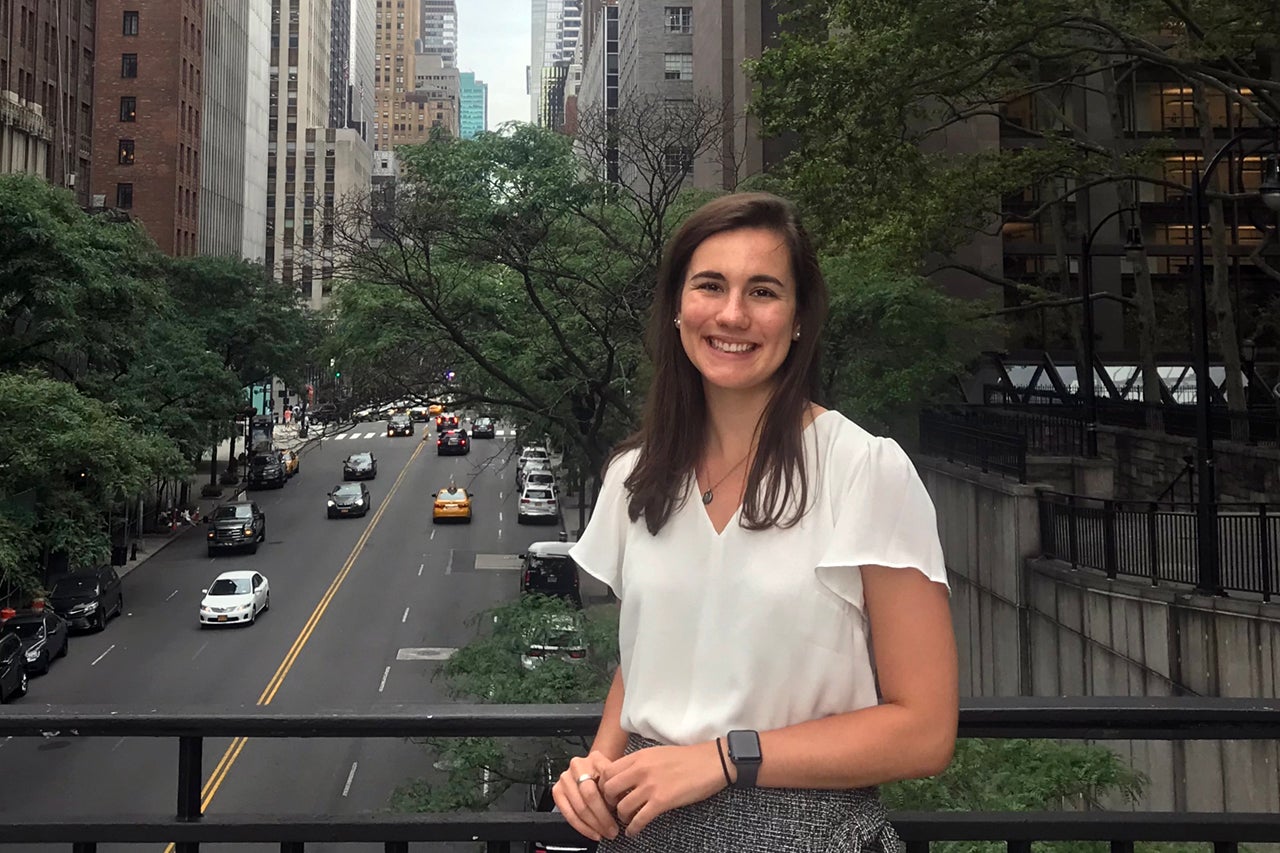A recent report shows that cyber attacks worldwide have increased almost fourfold in the last year.
These attacks are so commonplace, that former Cisco CEO John Chambers once said, “There are two types of companies: those that have been hacked, and those who don’t yet know they have been hacked.”
As an international studies and political science double major in the Honors College, Katya Caleca has always been interested in the international community. Last year, the Charlotte native interned with the Bureau of Western Hemisphere Affairs at the U.S. Department of State where she worked primarily on issues regarding Latin America, through the lens of the U.S. government. This year, she decided to take a different direction and accepted a summer internship at the EastWest Institute, an international nonprofit in New York City that works to address political, economic and security issues. In this new internship, Caleca is focusing on cybersecurity and the dangers it poses to governments and corporations around the globe.
The College Today recently caught up with Caleca to find out more about her internship and how the experience is shaping her future.
Why was an internship with the EastWest Institute of interest to you?
The EastWest Institute (EWI) is an international nongovernmental organization [NGO] that focuses on global conflict prevention. It concentrates on relations across the east and west hemispheres, with programs for Afghanistan, the Asia-Pacific, Global Cooperation in Cyberspace, the Middle East and North Africa, and Russia and the United States. As a global NGO, EWI is uniquely situated to bring actors together that may not connect otherwise.
What are the duties of your internship?
I’m interning with the Global Cooperation in Cyberspace program, and get to do a lot of interesting work. I do a lot of research on cyber-related policy, practices and topics, both to look at potential new focus areas and in preparation for EWI-hosted events and roundtables. I also prepare and distribute twice-weekly updates on international cyber affairs and perform various administrative tasks for the program.
What’s the most surprising thing you’ve learned so far through this internship?
Some of the most interesting things I’ve learned are about cyberattacks. Cyberattacks can be incredibly destructive and cripple companies, cities, federal infrastructure, and more, and, scarily enough, almost anyone with the know-how and a computer can wreak a lot of havoc. What’s more, lots of governments, institutions and organizations are woefully under-equipped to defend themselves against and adequately respond to a virulent cyberattack. One of the ways to protect an entity in the case of a cyberattack is cyber insurance, which has also been really neat to learn about.
How will this experience shape your future goals and interests?
This experience has definitely piqued my interest in cybersecurity. Experts believe that the next major global conflict will not take place on land, but in cyberspace. Even if I don’t end up pursuing a career focused on cybersecurity, it will be relevant to my life – whatever path I take – and is becoming increasingly pertinent in international relations, making it an excellent area to have some background in.
How are you putting what you’ve learned in the classroom to use in your internship?
I’m using a lot of my research skills, which I’ve been able to hone through my classes at CofC. General knowledge about the world and how various actors interact in the global arena has also been really useful. Overall, I think internships can provide great opportunities to learn new things because they force you to learn new skills and how to apply what you’ve learned (and what you’ve not learned) in the classroom in a real-world setting.
Why did you choose to major in international studies? What do you like about this subject?
I am an International Scholar through the Honors College, where students are required to double-major in international studies and something else. I grew up going to a public Spanish-language magnet school, where half of my courses were taught in Spanish. I knew a lot of people from diverse backgrounds and was exposed to different ideas and ways of thinking, which piqued my interest in the larger global community. International studies is a really interesting subject because it covers tons of different areas. You can, like me, focus on international politics and foreign policy, but you can also look at migration, trade, languages, religions, food – the list could go on and on. At the end of the day, all of these things are in some way connected and everyone is a part of and impacted by this international community, which, I think, makes it so interesting.
Do you have any idea yet what you might want to do after you graduate? Will this internship help you make that decision?
In the short term, I would like to live abroad for a year or two, learn another language and gain more international experience. I am looking at the Peace Corps and nationally competitive awards, so fingers crossed on those! Long term, I hope to pursue a career as a foreign service officer for the U.S. Department of State. This internship has definitely provided me invaluable background and exposure related to cyber, NGO work and more. I am planning to attend graduate school – at a later date – and this internship has given me a lot to think about with regard to what I may want to pursue a graduate degree in.




